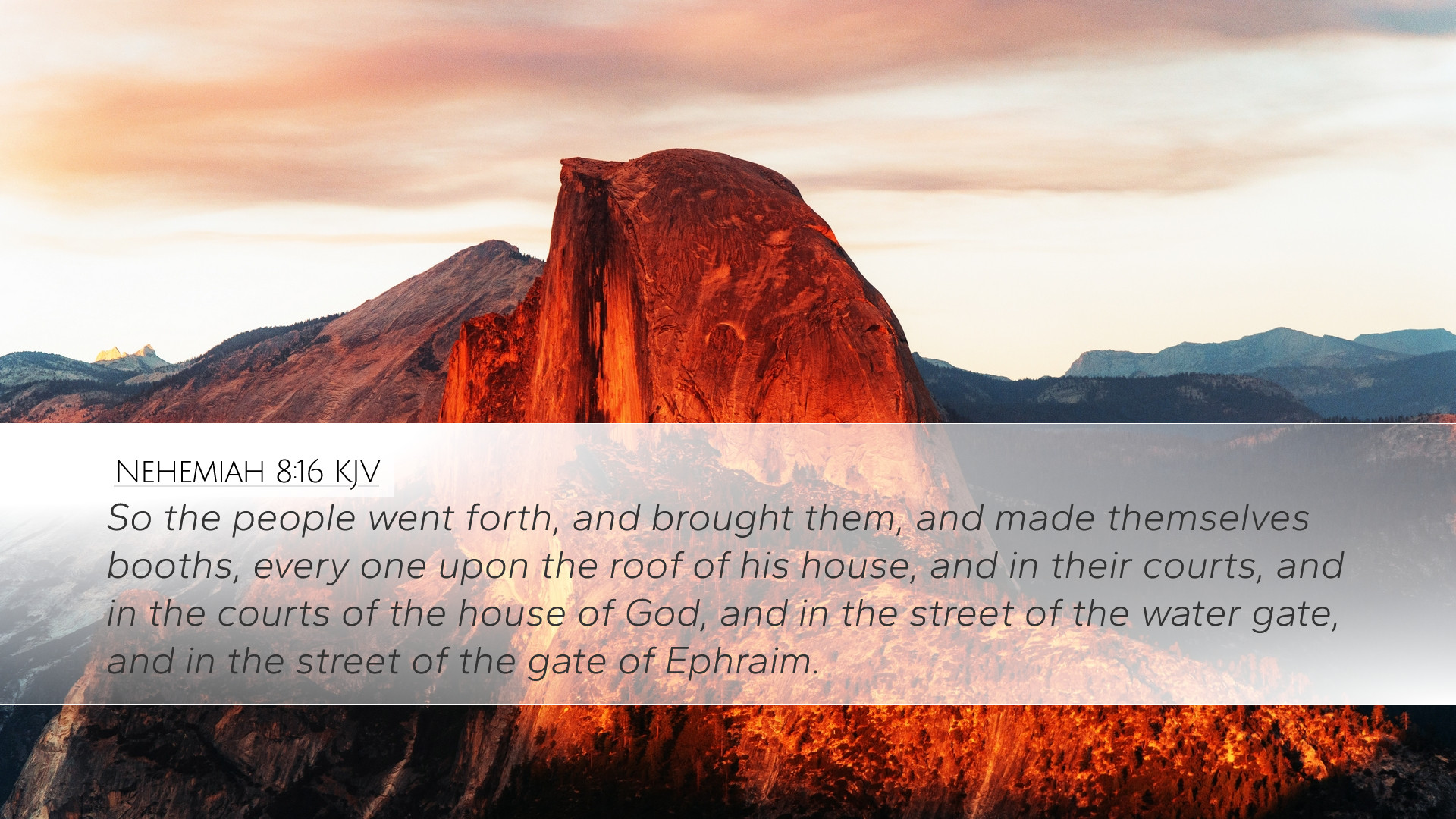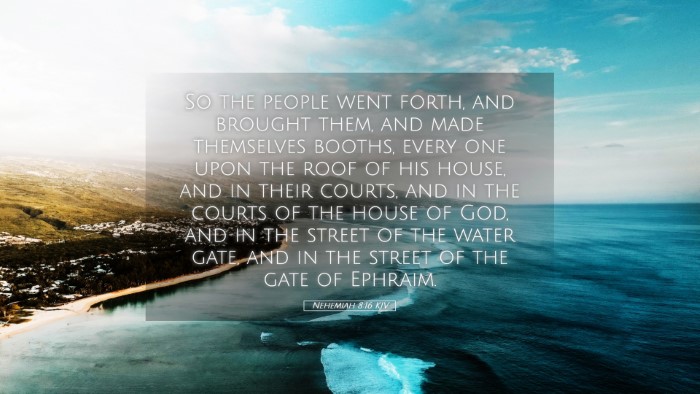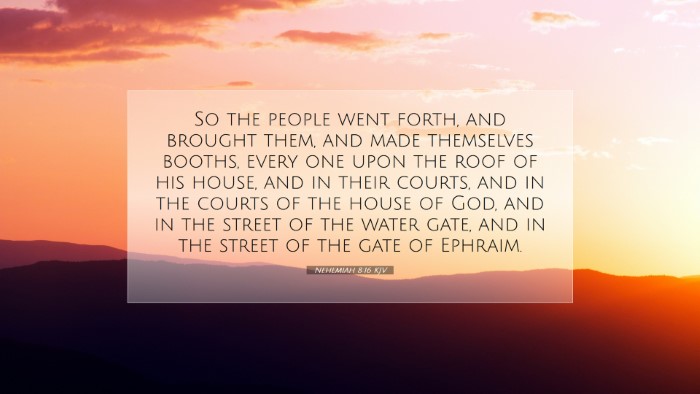Old Testament
Genesis Exodus Leviticus Numbers Deuteronomy Joshua Judges Ruth 1 Samuel 2 Samuel 1 Kings 2 Kings 1 Chronicles 2 Chronicles Ezra Nehemiah Esther Job Psalms Proverbs Ecclesiastes Song of Solomon Isaiah Jeremiah Lamentations Ezekiel Daniel Hosea Joel Amos Obadiah Jonah Micah Nahum Habakkuk Zephaniah Haggai Zechariah MalachiNehemiah 8:16
Nehemiah 8:16 KJV
So the people went forth, and brought them, and made themselves booths, every one upon the roof of his house, and in their courts, and in the courts of the house of God, and in the street of the water gate, and in the street of the gate of Ephraim.
Nehemiah 8:16 Bible Commentary
Commentary on Nehemiah 8:16
Bible Verse: Nehemiah 8:16 (ESV) - "So the people went out and brought them and made themselves booths, each on his roof and in his courts and in the courts of the house of God, and in the square at the Water Gate and the square at the Gate of Ephraim."
Introduction
The passage of Nehemiah 8:16 provides a glimpse into a pivotal moment in the restoration of Israel. After returning from exile, the people of Israel, under the guidance of Nehemiah and Ezra, began to reintegrate their religious practices. This verse specifically highlights their obedience and response to God's Law as they celebrate the Feast of Tabernacles. In this commentary, we will glean insights from notable public domain commentaries including those of Matthew Henry, Albert Barnes, and Adam Clarke to provide a comprehensive view on this verse.
Historical Context
Matthew Henry emphasizes the reinstatement of the Mosaic Law as central to the revival occurring in Jerusalem. This chapter sets the stage for the people to re-establish their identities as God’s chosen people, and the Feast of Tabernacles serves as a reminder of their ancestors' wandering and reliance on God.
Albert Barnes highlights that this event signifies not just a festival, but a heartfelt return to covenant faithfulness. The Israelites are instructed to dwell in booths made from branches, reflecting their past dependence on God during their wanderings in the desert.
Theological Implications
Nehemiah 8:16 serves as a vital link between the observance of the Law and communal identity. The act of building shelters is not merely a ritualistic endeavor; it symbolizes their recognition of God’s provisions. Adam Clarke recognizes this as an expression of gratitude and an affirmation of God’s sovereignty in their historical journey.
- Acknowledge God’s Provision: The booths represent the fragility of life and the ultimate security found in God.
- Community in Worship: The gathering emphasizes that worship is a communal experience that also acknowledges individual participation.
- Memory and Celebration: The practice of the Feast of Tabernacles is steeped in memories that remind them of their past and encourage them towards future faithfulness.
Spiritual Application
In reflecting on Nehemiah 8:16, we can derive several practical applications relevant for pastors, students, theologians, and Bible scholars today:
- Emphasis on Obedience: Like the Israelites, contemporary believers are called to respond to the Word of God with action. Hearing and doing must go hand in hand.
- The Importance of Community: Discussing the preservation of traditions and rituals calls for modern believers to engage in communal worship and remembrance of God’s faithfulness.
- Reflection and Renewal: The act of building booths can be seen as a metaphor for building places of spiritual retreat in our lives where we can reflect on God's past deliverance.
Conclusion
Nehemiah 8:16 captures a transformative moment in Israel's history—a moment marked by deep reverence for the Law and joyous celebration of their heritage. By delving into the insights provided by Matthew Henry, Albert Barnes, and Adam Clarke, we see that this passage is not just about constructing physical booths, but about the spiritual dwelling among God's presence. It is a testament to the church’s ongoing journey of remembering, celebrating, and living out the truths of Scripture.


